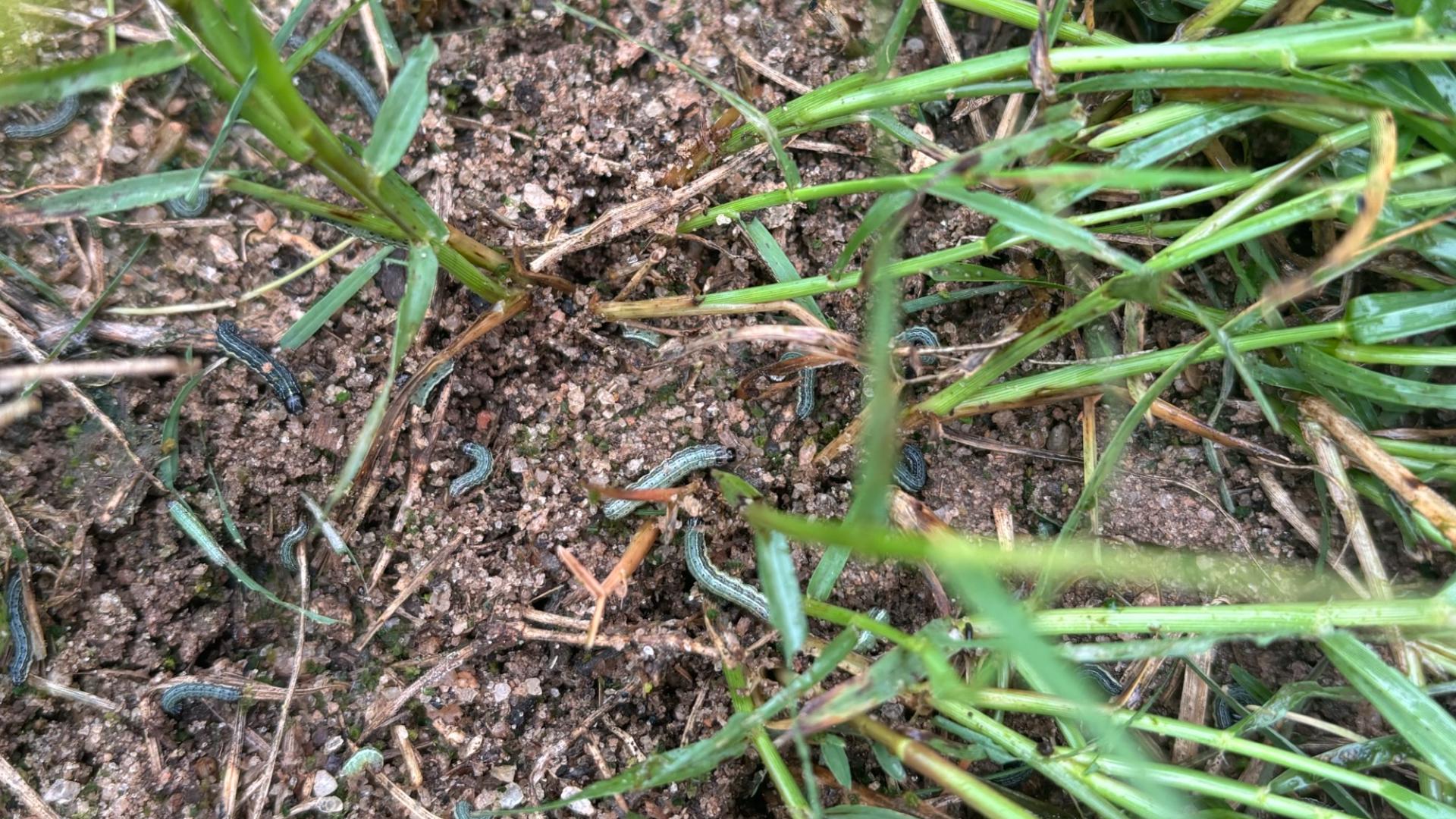CRAWFORD COUNTY, Ga. — With most of Central Georgia moving out of a major drought, rain is helping farmers recover.
Now, some are having to deal with the impact of fall armyworms. Though called warms, they are caterpillars that migrate yearly up from Florida.
According to the University of Georgia Extension, the worms tend to flock to tender crops and are active between late summer and early fall. The program is monitoring sightings across the state.
They are urging farmers to scout their pastures and hayfields. A recent post shows 70% of counties have confirmed sightings, which includes people from Bibb, Peach, Crawford, Monroe, Twiggs and Houston County.
Peach and Taylor County Extension Coordinator Jeff Cook said fall armyworms prefer Bermuda grass.
"The moths come in and lay eggs across the field," Cook said. "The eggs hatch out and then you've got small caterpillars that feed on the grass for 21 to 28 days."
He said throughout the months of July and August, their populations peak.
"You'll have low levels of them earlier in the year but every 28-30 something days, they'll cycle back through so you see larger populations," Cook said. "When we get into July and August that's when we can really see populations explode and fields get completely consumed if you are not watching for them."
Leighton Cooley, a farmer in Crawford County, said he usually harvest four to five rolls of hay per acre, but an armyworm infestation could reduce it by 50% or more. Cooley sells hay.
"These worms consume the crop and they always start with the best grass first," Cooley said. "We cant prevent them from coming here but we do have a preventative spray program that we use."
Cook said there's one preventative measure, in the form of a spray but treatment for every field may look different depending on the severity of the infestation.
"There's a product that we spray, they have to feed on it for them to kill them," Cook said.
Cooley was one of the several farmers whose crops had to recover from drought. He said his crops are getting their moisture back, which makes them vulnerable to the worms.
"We had a lot of grass start greening up really tender grass, good vegetation, and that's really when it was right timing, great grass for the worms to come in," Cooley said.
Cook said there's a few ways to check if your grass has armyworm damage: your grass has ragged leaves with stripped stems or you may see brown patches in your field with little to no grass.
Cooley put together a handmade worm catching contraption to check his property, which accounts for over 90 acres.
"We generally check every 3-4 days," Cooley said. "You just literally have to be checking for them. Now once they've gotten a couple weeks old, you'll start seeing the damage visibly, you can see in the field where they've stripped the foliage off the stem."
He said the damage takes a financial toll on production.
"That's just another added expense," Cooley said. "Not just the time of having to spray but the expense of spraying, the tractor, the equipment and of course the chemical we apply."
UGA Extensions does have county offices, so Cook said if someone isn't sure if their farm has a fall armyworm infestation, its best to call their local agent for help or an agriculture professional.

